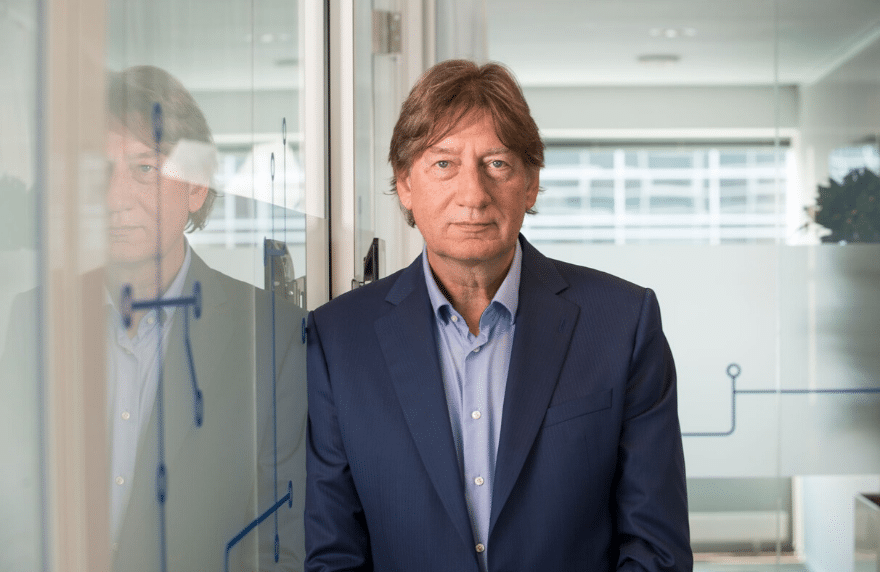In 2022 werden we hardhandig wakker geschud uit onze strategische winterslaap. ‘We zijn naïef geweest’, heb ik het afgelopen jaar veel mensen horen zeggen. Terecht, want de oorlog in Oekraïne toont aan dat ongebreidelde bezuinigingen op defensie gebaseerd waren op een misplaatst gevoel van veiligheid. Alleen Amerika kan Oekraïne grootschalig militair steunen. Als het conflict onverhoopt escaleert naar een treffen met de Navo, moet dat land ons weer uit de brand helpen.
Al eerder waren we erachter gekomen dat we te afhankelijk van China zijn. Dat land heeft zich de afgelopen decennia ontwikkeld tot werkplaats van de wereld, waardoor we niet eens in staat waren aan mondkapjes te komen toen de coronacrisis uitbrak.
Autonomie blijft een leeg begrip
Corona, maar vooral de oorlog dwingt Europa ‘strategisch autonoom’ te worden. Daarover zijn ze het in Brussel en de hoofdsteden eens, maar tot nu toe is het een leeg begrip. Op defensiegebied moeten we zelfstandig kunnen optreden, maar hoe dan? We moeten investeren in onze industrie, maar ‘de-industrialisatie’ dreigt.
Vanwege de hoge energieprijzen overwegen bedrijven nu namelijk uit Europa te vertrekken. De energieboycot en de verduurzaming zijn daar debet aan. President Bidens inflation reduction act, met enorme subsidies voor vergroening mits ‘made in America’, doet de rest. Waarom hier failliet gaan als het in Amerika goedkoper kan, denkt de Europese auto-, chemische-, kunstmest- en aluminiumindustrie.
Met de landbouw is iets dergelijks aan de hand. Door de hoge energieprijzen sluiten glastuinders de deuren. De universiteit van Wageningen berekende dat door duurzame landbouw de opbrengsten tot 20 procent kunnen afnemen. Daardoor ontwikkelen we ons in rap tempo van voedselexporteur tot voedselimporteur. Hoezo autonomie?
Ook verduurzaming blijkt niet tot energieonafhankelijkheid te leiden. Voor de toekomstige import van waterstofgas blijven we afhankelijk van autocratieën als Marokko, Saudi-Arabië en Oman. En China blijft onze grootste leverancier voor zonnepanelen en andere duurzame technologie. Dit laat zien dat dictators ons immer geheven vingertje kunnen knakken zolang we van hen afhankelijk zijn voor industrieproducten, grondstoffen en energie.
Gigantische lithiummijn in Frankrijk
Gelukkig kunnen we in Europa ook nog wel iets. In midden-Frankrijk wordt een gigantische lithiummijn in gebruik genomen. Daarmee kunnen jaarlijks 700.000 autobatterijen worden gemaakt. Zeldzame aardmetalen, essentieel voor de hightechindustrie, worden in veel landen gevonden. China is nu de belangrijkste leverancier omdat alleen dat land de gigantische smeerboel die de winning veroorzaakt, voor lief neemt.
Wil Europa geen openluchtmuseum worden, dan moet ook hier de spade in de grond. Maar net als met de plaatsing van windmolens zal mijnbouw Not In My Back Yard-gedrag aanjagen. Dit, in combinatie met al dan niet gerechtvaardigde milieuprotesten, zien we bij de winning van gas uit de Noordzee en kernenergie. De trage procedures om iets van de grond te krijgen werken ook al niet mee.
Maar willen we onze welvaart en veiligheid behouden, dan zullen we het in 2023 over een andere boeg moeten gooien. Er zijn ongemakkelijke compromissen nodig voor een nieuwe balans tussen defensie en andere overheidstaken, duurzaamheid en industrialisatie, en milieu en afhankelijkheid van andere landen.
Het goede nieuws is dat de EU zich dit jaar niet door Poetin uit elkaar liet spelen. Dat maakt mij toch nog redelijk optimistisch dat die aanpassing gaat lukken.
Rob de Wijk, Trouw, 30 december 2022
Rob de Wijk is hoogleraar internationale relaties en veiligheid aan de Universiteit Leiden en oprichter van het Den Haag Centrum voor Strategische Studies (HCSS). Hij schrijft wekelijks over internationale verhoudingen. Lees zijn columns hier terug.




